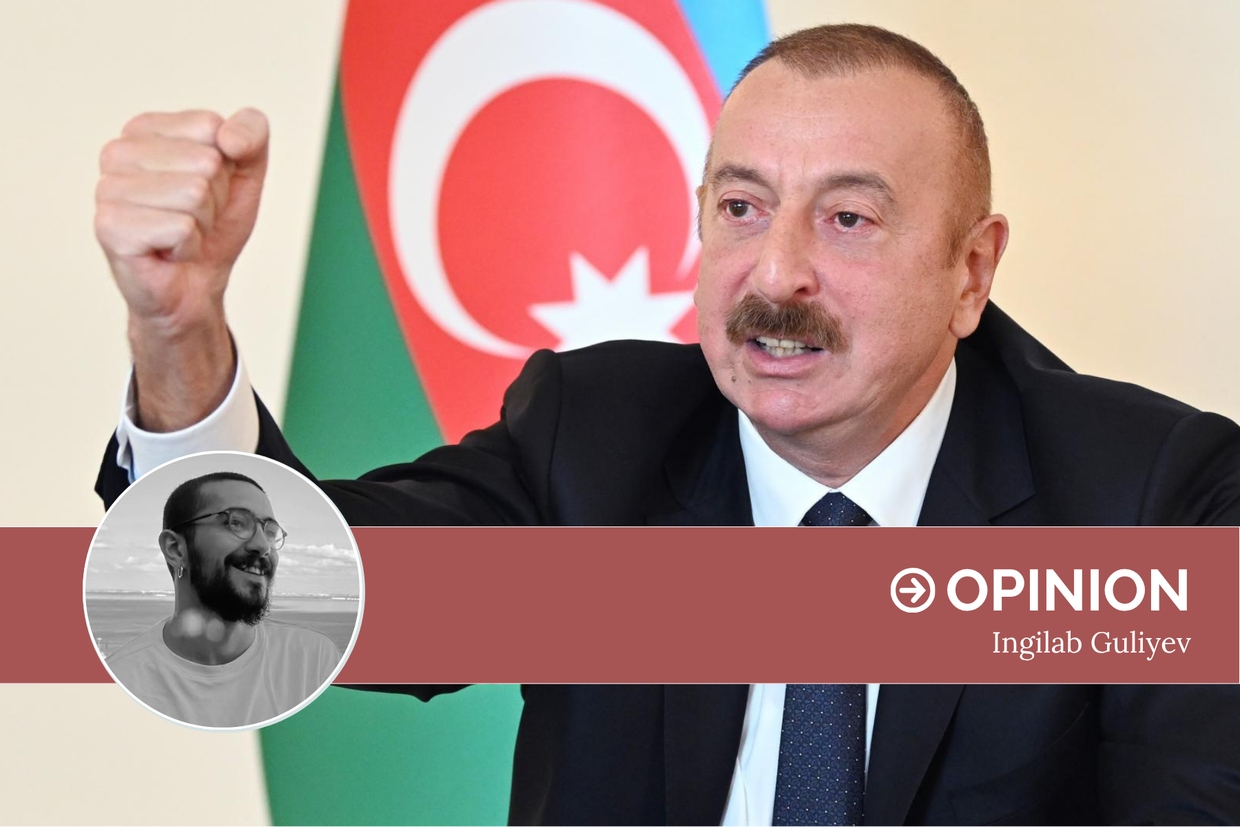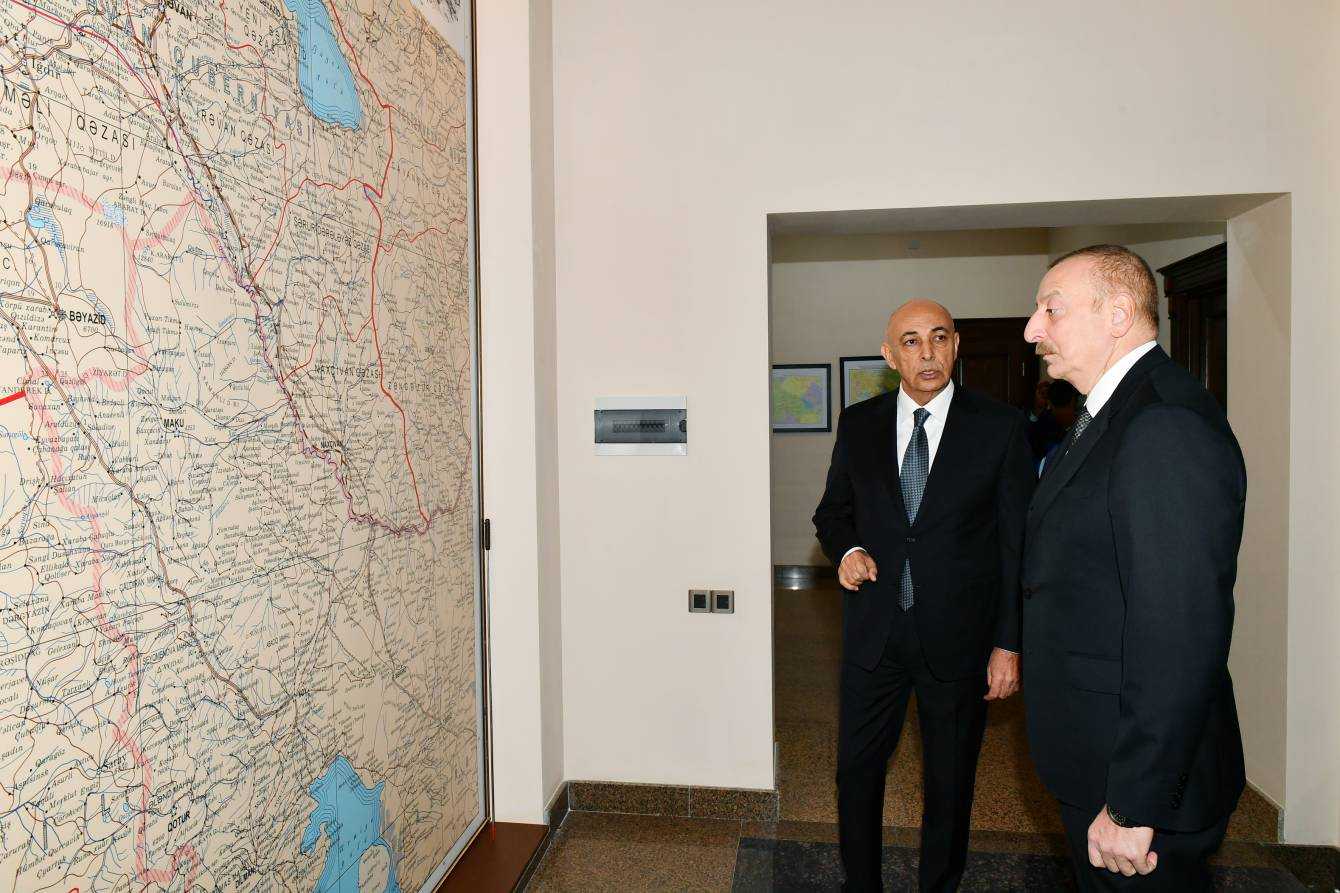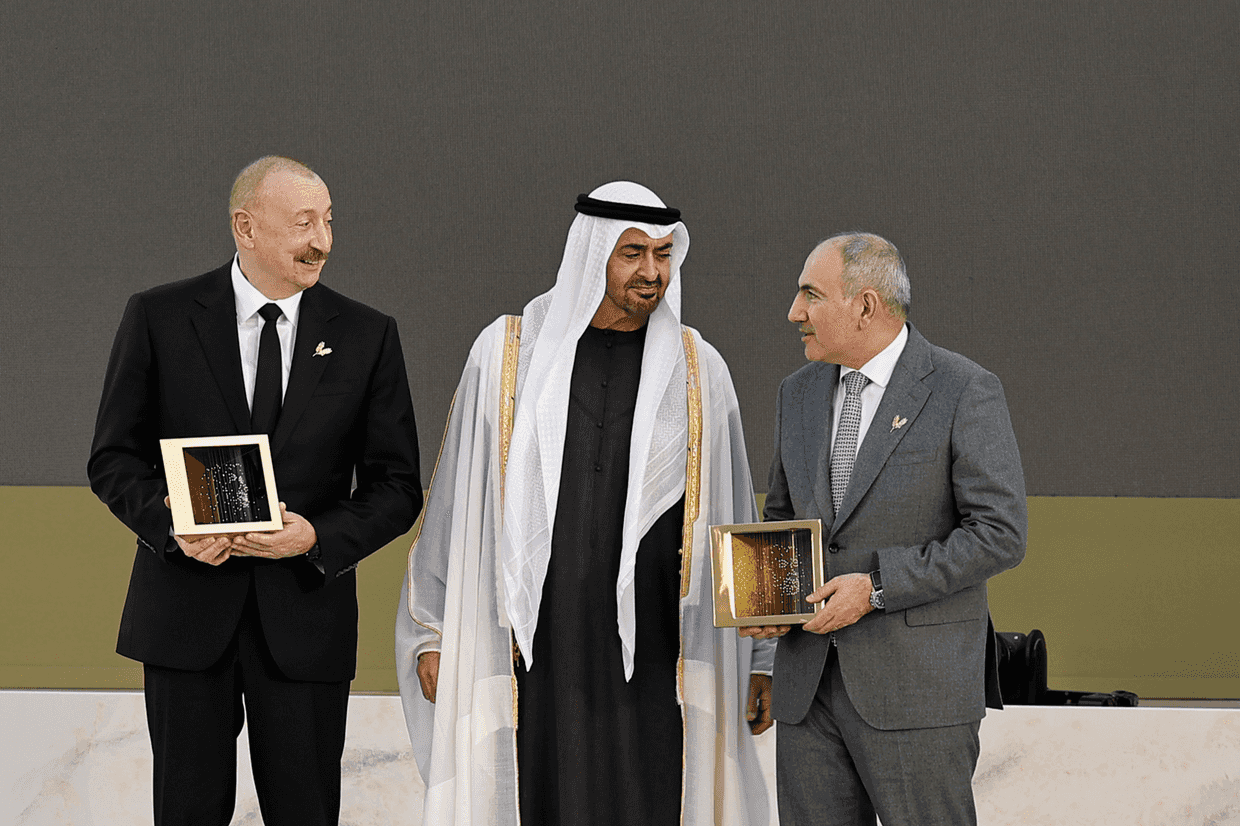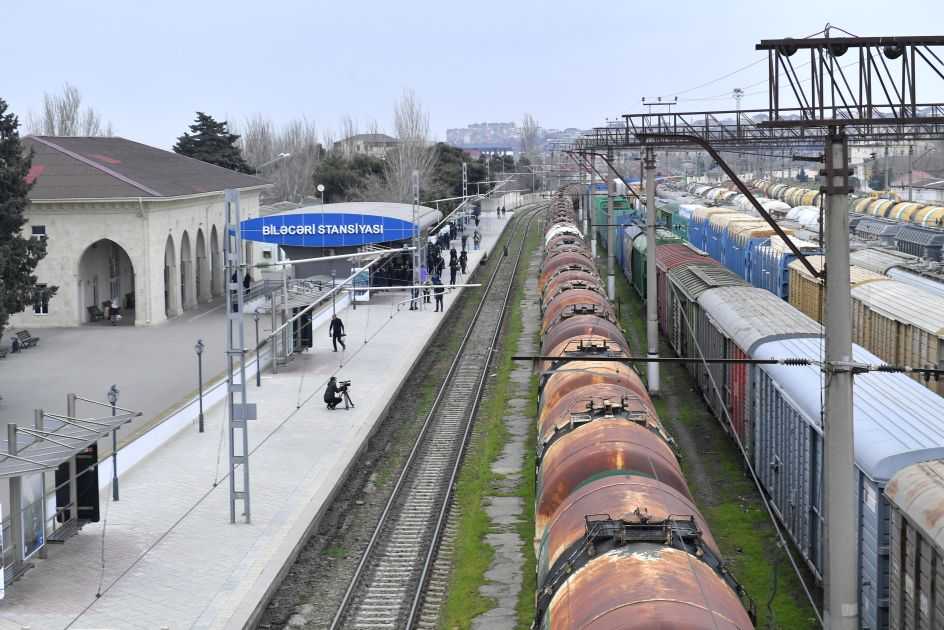EXCLUSIVE: Azerbaijan’s ‘Western Azerbaijan’ campaign exposed in leaked documents

Leaked documents reviewed by OC Media reveal how Azerbaijan’s Presidential Administration has coordinated and funded the international rollout of the ‘Western Azerbaijan’ narrative — a campaign that, while framed as humanitarian, lays the groundwork for potential irredentist claims on Armenian territory.
In recent years, Azerbaijan has launched a campaign centred around the concept of ‘Western Azerbaijan’ — a term that refers not to its own territory, but to some, or all of the Republic of Armenia.
The campaign is framed as a humanitarian effort to support the ‘safe and dignified return’ of Azerbaijanis displaced from Armenia during the collapse of the Soviet Union. In the late 1980s and early 1990s, at the outset of the First Nagorno-Karabakh War, hundreds of thousands of Armenians and Azerbaijanis were displaced as ethnic tensions and violence erupted in both countries.
Over time, the ‘Western Azerbaijan’ narrative has evolved into a state-directed communication strategy. The initiative is now occasionally deployed as a rhetorical instrument in Baku’s ongoing conflict with Yerevan.
While the campaign is publicly presented as cultural or humanitarian, independent experts have identified clear irredentist undertones. Thomas de Waal, a UK-based regional analyst, described the initiative as ‘simply irredentist’ in a 2023 article for Carnegie Europe.
Leaked documents from the Azerbaijani Government, obtained by OC Media, show that the discourse is closely coordinated and supported by the Presidential Administration of Azerbaijan, despite being fronted by the Western Azerbaijan Community (WAC).
‘The Azerbaijani government seeks to keep nationalist fervor constantly alive’, Altay Goyushov, a visiting scholar at Paris Institute of Political Studies and expert on the Azerbaijani civic space, told OC Media.
‘It serves as a tool to mobilise public opinion and distract people from social issues and their deprived rights. Moreover, it acts as a kind of Damocles’ sword to intimidate Armenia’.
Messaging through foreign legitimacy
The documents show that the Presidential Administration directly financed and supervised the campaign — organising conferences, hiring communications consultants, and producing messaging materials. The names, dates, and contracts in the files align with publicly available records.
At the centre of the effort was a high-profile international conference, held in Baku from 5–6 December 2023, titled ‘Ensuring the Safe and Dignified Return of Azerbaijanis Expelled from Armenia: Global Context and Just Solution’. Azerbaijani state funds — over ₼109,000 ($65,000) — covered hotel accommodations, audiovisual production, branding, and the creation of a digital platform to distribute pro-return content.
At least 34 foreign participants from across Europe, Asia, and the Middle East were hosted. Guests included academics from Italian and Greek universities, analysts from Russian institutions, and a representative and former advisor of Russian President Vladimir Putin from Donetsk, a Russian-occupied territory in Ukraine. Some participants were already based in Baku, including foreign scholars from the state-governed ADA University.
Just days before the conference, the Strategic Communications Centre, a government-funded public union, was contracted to upload narrative content to the state-supported Virtual Western Azerbaijan portal. Their role: to ensure that the conference’s discussions and conclusions reach international media channels.
Despite these efforts, a post-event review by OC Media showed little follow-up. Few participants publicly referenced the conference or its themes after returning home, and international coverage was sparse. On-site in Baku, however, most participants were quoted in state media endorsing the message.
Still, the organisers considered the event a success and held a similar one the following year. Many participants returned, joined by new attendees from Western universities and media outlets. During the event, a ceremony was held to grant them symbolic ‘memberships of gratitude’ for their role in promoting the WAC.
‘A fascist state’
Although the WAC was originally registered as a refugee initiative in the late 1980s, it remained largely inactive until 2022, when the Azerbaijani government reactivated it. That August, the organisation was formally rebranded with updated charters and a new name. In October the same year, Azerbaijan’s parliament created a working group focused on policies of return to ‘Western Azerbaijan’.
‘[The discourse] was reinforced during the brief military clashes in 2022’, Goyushov explained. ‘The Azerbaijani government has long employed irredentist rhetoric toward Armenia, declaring Yerevan and Zangezur as historically Azerbaijani territories’.
Just weeks after the Lachin Corridor blockade of Nagorno-Karabakh began in late 2022, Azerbaijani President Ilham Aliyev invoked such a narrative during a nationally televised address. He referred to Armenia as ‘historical Azerbaijani land’, and linked the September 2022 Armenia–Azerbaijan clashes, when Azerbaijan took control over strategic positions on Armenian territory, with the newfound visibility of ‘historically Azerbaijani cities’.
By January 2025, as peace treaty talks intensified, Aliyev doubled down. In a lengthy interview with Azerbaijani state media, he described Armenia as a ‘fascist state’ due to its failure to accept the return of Azerbaijani refugees.
‘We live as neighbours to such a fascist state, and the threat of fascism persists. Therefore, fascism must be eradicated. Either the Armenian leadership will destroy it, or we will. We have no other choice’, Aliyev said at the time.
The interviewer subsequently noted that Aliyev had added a third strategic goal to his previous two: (1) the liberation of Nagorno-Karabakh and (2) its reconstruction. The new addition: ensuring the return of the Western Azerbaijan Community to Armenia.
Still, after a US-brokered summit in Washington on 8 August 2025, where Armenian and Azerbaijani leaders initialled, but did not sign, a draft peace treaty, the Western Azerbaijan rhetoric softened. The treaty includes a clause prohibiting territorial claims by either side, and another on the withdrawal of legal claims against each other in international courts — including the issue of the right of return for Armenians from Nagorno-Karabakh.
‘The Azerbaijani government uses the discourse as a bargaining chip vis-à-vis the more than 100,000 Armenians who left Karabakh after the war’, Goyushov concluded.
Vafa Naghiyeva, a doctoral researcher at the University of Leipzig, who studies post-imperial and militarist narratives in post-war Azerbaijan, shared Goyushov’s view.
‘Beyond its geopolitical function, the discourse of Western Azerbaijan serves as a symbolic extension of the post-war state narrative’, she told OC Media. ‘It transforms the memory of displacement into a form of moral legitimacy and collective identity, allowing the government to preserve a sense of permanent post-war normality’.
She added that the discourse could be used for multiple purposes.
‘This strategy keeps society emotionally mobilised around the idea of unfinished justice and strengthens the state’s communicative control both at home and abroad’.
State-sponsored events continue
But the discourse didn’t disappear entirely. When an unverified news story appeared in Azerbaijani opposition media in August claiming that the parliamentary group would be dissolved, the WAC issued a denial — accusing Armenia, without presenting evidence, of planting the story.
In early October, ADA University funded the publication of a book on ‘Western Azerbaijan’, and during an OSCE conference in Warsaw, Azerbaijan organised a side event focused on the theme. An Armenian NGO, the Union of Informed Citizens, and part of the Armenian delegation accused the panel of promoting renewed irredentist claims.
Later the same month, the WAC organised an event together with state-linked diaspora groups in Germany on the topic. The aim of the event was to raise awareness regarding Western Azerbaijan. A similar event was organised in Brussels the following day — Azerbaijani state-media claimed that there were more than 120 participants.
Aziz Alakbarli, chair of the WAC and a ruling party MP, noted on 26 October that Armenia had ‘no other choice but to reckon with Azerbaijan and its President’, otherwise it could ‘jeopardise the existence of the Armenian state’.
He concluded by saying that Armenia, in order to prevent this, must accept all of Azerbaijan’s conditions, including ensuring the return of the Western Azerbaijan Community.
Neither the WAC nor the Presidential Administration of Azerbaijan responded to OC Media’s requests for comment.

This article was translated into Russian and republished by our partner SOVA.
This article was translated into Armenian and republished by our partner CivilNet.
This article was translated into Azerbaijani and republished by our partner Meydan TV.










